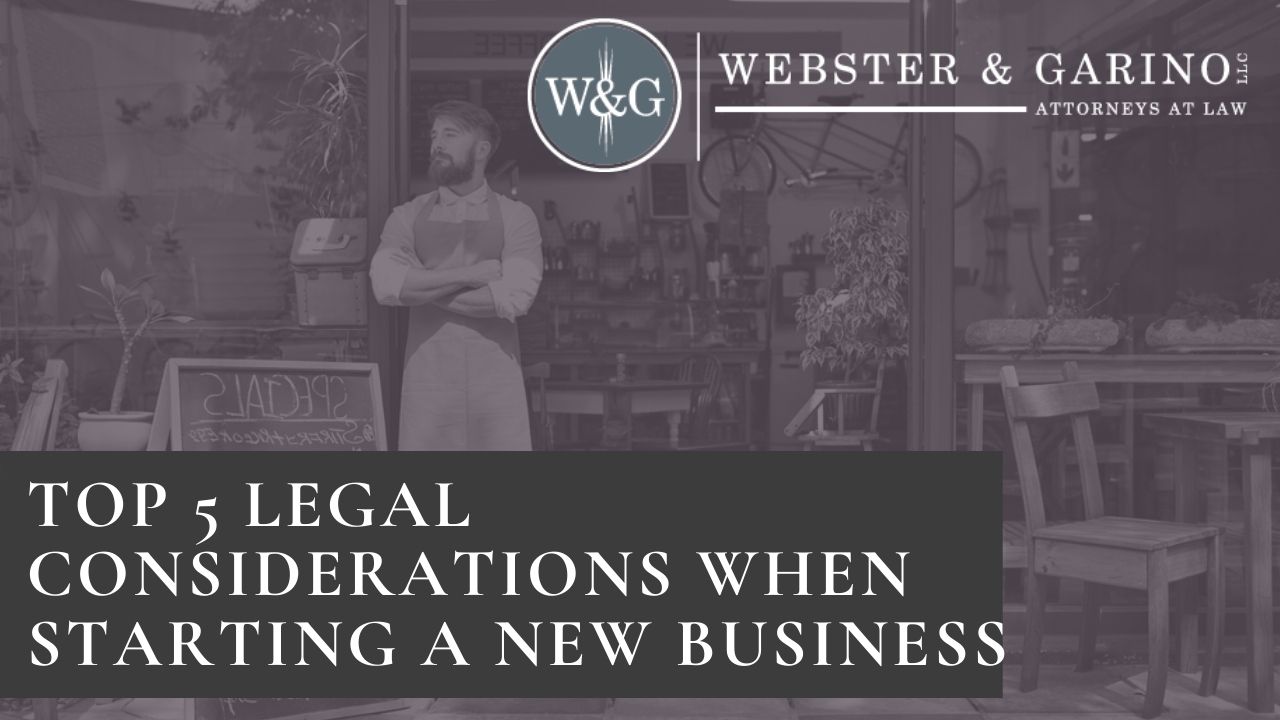Top 5 Legal Considerations When Starting a New Business

When planning a new business, entrepreneurs should gain a thorough understanding of the legal issues pertinent to their startups. Some legal considerations are shared by almost all businesses, whereas others might have specific or unique challenges. Westfield Indiana business lawyers help entrepreneurs evaluate their choices and avoid difficult and costly legal problems after they launch. As business people navigate the process of starting a business, they will encounter these top legal issues.
- Business Structure
Liabilities specific to your business influence the choice of legal structure. The business structure determines accounting practices and tax filing requirements. Whether or not a business is self-funded or reliant on investors or venture capitalists enters the equation as well. An Indiana lawyer can explain the pros and cons of different legal structures concerning liability and taxation.
- Trademarks and Other Intellectual Property
When choosing a business name, brand, or product name, you must avoid using a name already trademarked by someone else. Thorough searches of business names and trademarks will be necessary to avoid inadvertently copying another entity’s name. If that happens, the trademark holder can force you to change your business name and possibly pay damages.
Many businesses also depend on other intellectual property, such as product formulas or software code. An Indiana lawyer can assist with registering ownership of intellectual property vital to a company’s profitability.
- Written Founders’ Agreement
Best friends and relatives may love and trust each other, but sentimental feelings can diminish once they start a business together. A written contract that explains the parties involved’ rights and obligations can keep everyone on track and provide a playbook for settling disputes, making changes, documenting ownership percentages, assigning decision-making authority, or adding and removing partners.
- Confidentiality and Non-Disclosure Agreements
Starting and running your business will involve sharing information with service providers, suppliers, and contractors. Because they may have access to sensitive information, you should protect your interests by having outside parties sign confidentiality and non-disclosure agreements.
- Insurance
Different businesses need different types and levels of insurance. A professional corporation may need professional indemnity insurance. A building contractor may need employer’s liability insurance. A retail operation will need some kind of premises liability coverage. A legal evaluation of the risks associated with your operation and regulatory requirements will alert you to vital insurance needs.
Talk to Westfield Indiana Business Lawyers
At Webster & Garino LLC, we take the time to understand the unique aspects of our small business clients so that we can propose optimal legal strategies. For comprehensive business law advice, call our office at (317) 565-1818.
Read About Everything to Know About Wrongful Death in Indiana
